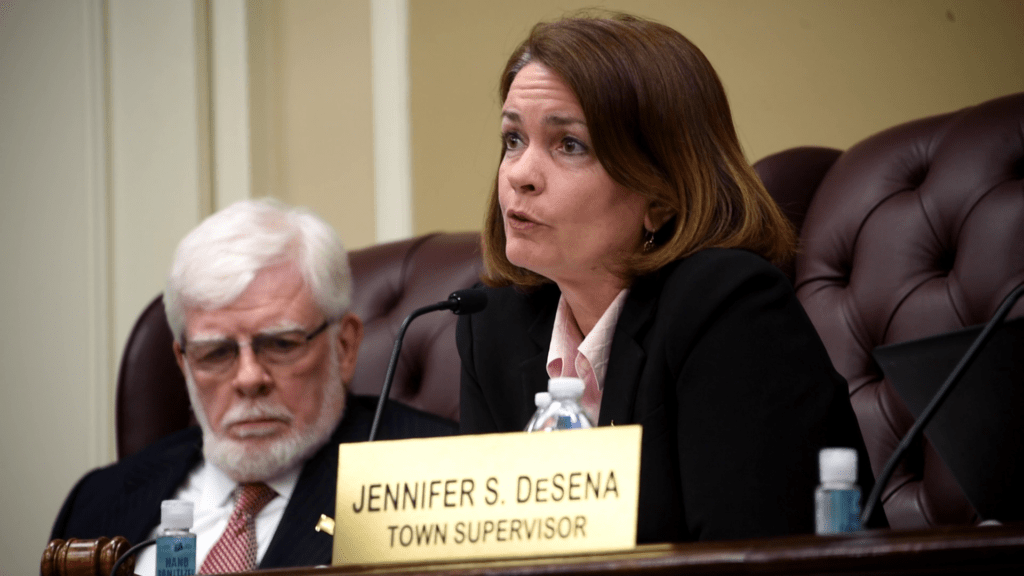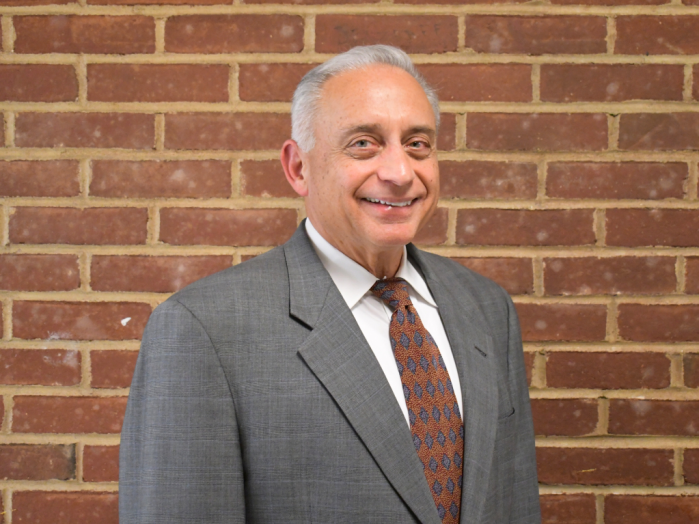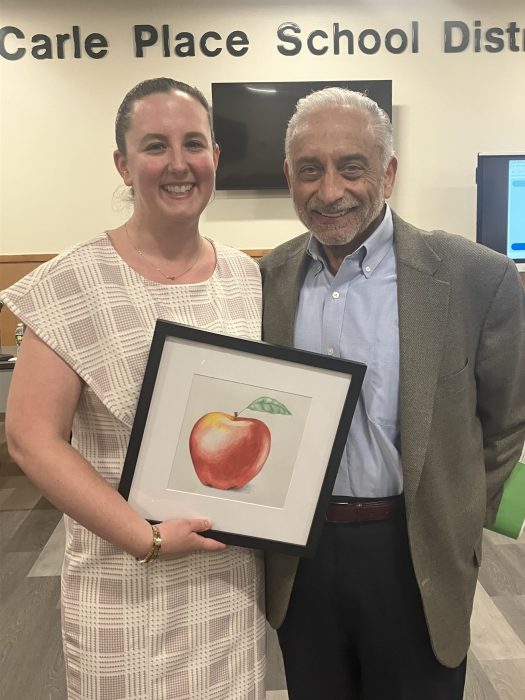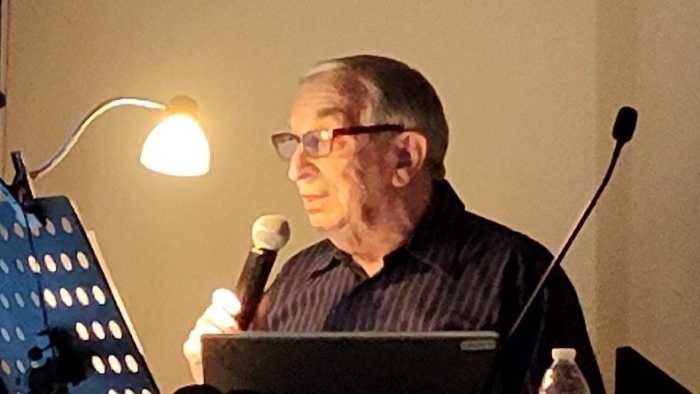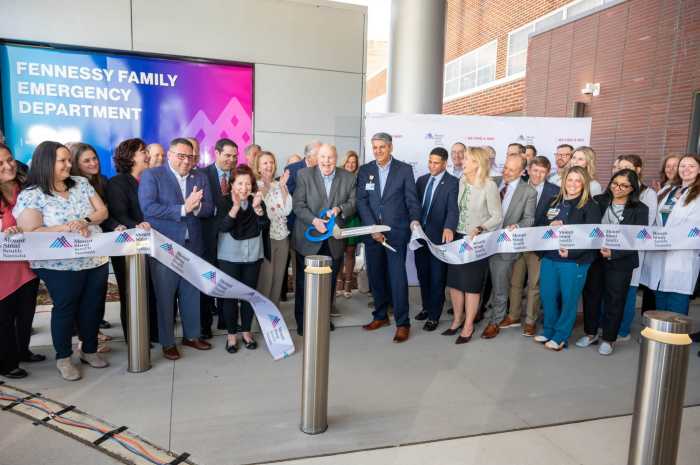The North Hempstead Town Board voted along party lines Tuesday, April 1, to amend its rules of procedures, including shifting the responsibility of reading public comment cards from the town clerk to the town supervisor.
This change provoked opposition from Democratic Council Members Robert Troiano and Christine Liu, who both voted against the amendment.
They said their main concern stemmed from a comment from North Hempstead Town Supervisor Jennifer DeSena, who said cards could be read in an order made by the supervisor’s discretion. This would deviate from the current practice where the town clerk reads them in the order they were submitted.
“I think that the public loses something by moving this from the clerk, who’s always been [calling cards] for over two decades, to one of the members of this body,” Troiano said.
The amendments passed 4-2, with all board Republicans voting in favor of the amendment. Council Member Mariann Dalimonte, a Democrat, was not present to vote at the meeting.
Town attorney Richard Nicolello said his office initiated the board procedure amendments. He said he intended to make the town board’s procedures consistent with those of other local municipalities.
Public comment cards will now be read by the town supervisor, who is now named the meeting’s presiding officer. In her absence, the deputy town supervisor will assume her position and call the cards but will not be permitted to vote.
If neither is present, the supervisor can appoint a board member as the board’s acting presiding officer for the meeting.
DeSena said the presiding officer would be able to call cards in any order at their discretion. She said this could help to offer a diversity of comments during the designated 30-minute time period, which sometimes is not enough time for every public comment to be made.
Nicolello, who has previously served as presiding officer on the Nassau County Legislator, said he has used this sort of discretion to permit a public official to speak at the beginning of public comment due to time constraints.
“It’s good to have some flexibility,” Nicolello said.
Liu said she was concerned with the subjectivity of the presiding officer’s selection of which public comments are made and in what order. She advocated for a “first-come, first-serve” protocol, calling it the “most fair.”
DeSena said this protocol would not be implemented, and cards would be read “very much like [they] always have” while still permitting discretion on how they are called.
Liu also said that although multiple people may be speaking on the same topic, they could offer different opinions or perspectives. Selecting who can speak by topic could prevent certain opinions from being expressed, she said.
“We can’t just decide, ‘Well, we’ve heard three cards on it and now we should move on,’ because everybody has their own points to make,” Liu said.
Troiano said his concern with leaving the discretion up to the supervisor is that it could result in not calling certain individuals or avoiding certain topics. Public comments, and specifically scrutiny directed toward the town supervisor, have grown intense at some town board meetings.
“I think when people come to speak at this mic, typically they want an opportunity to speak to one of the seven of us, and most particularly to the supervisor,” Troiano said. “Having the town clerk have control over the order of the cards that are called and the questions that are called offers a level of independence from any one of us, specifically the supervisor.”
Council Member Ed Scott supported DeSena’s argument, saying there is fairness in selecting different public comments to address as many topics as possible within the allotted time limit.




